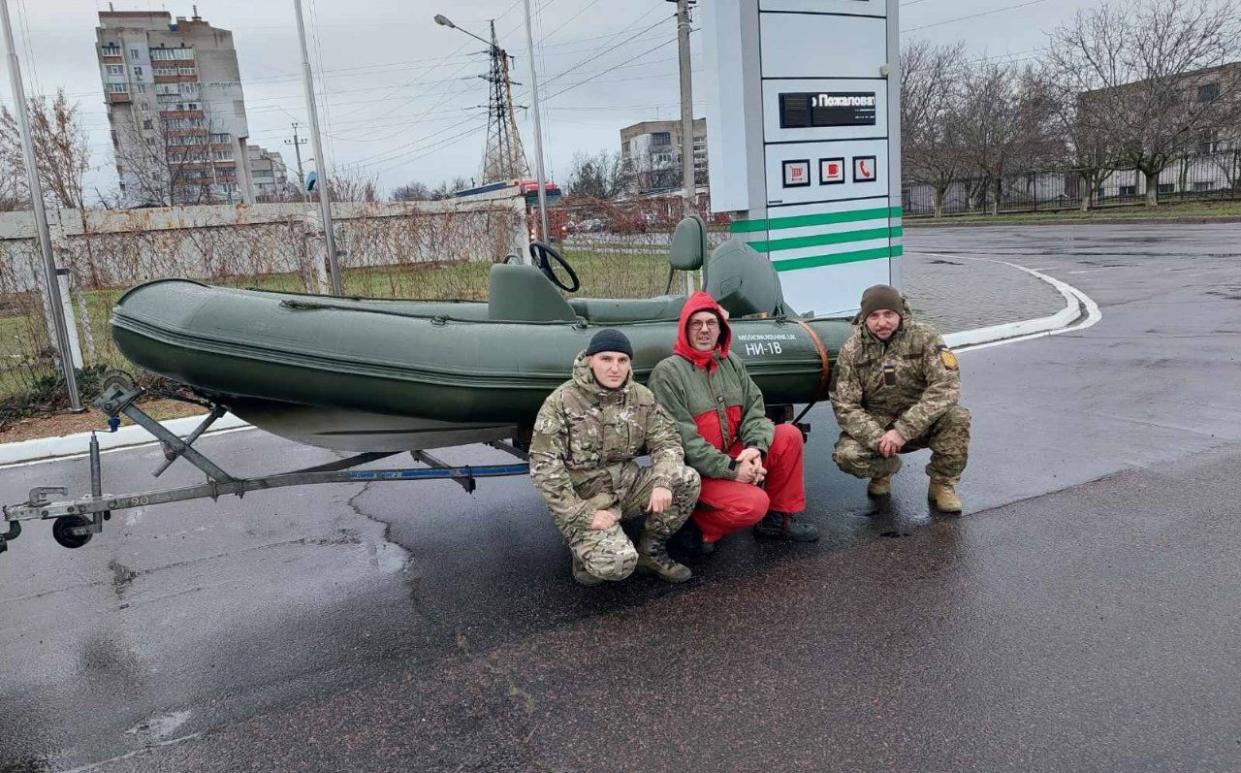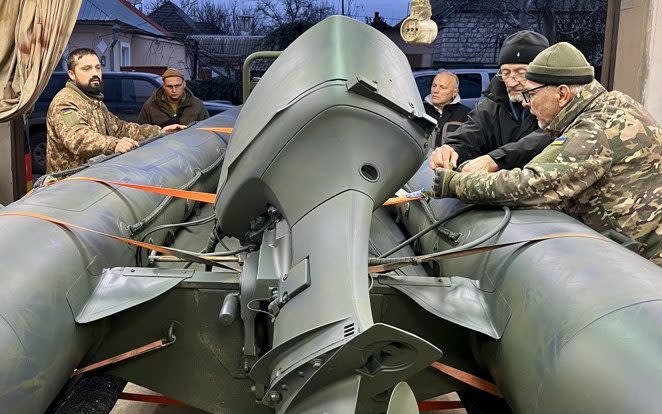Send Channel migrant boats to Ukraine to help war effort, Government urged

Boats used by migrants to cross the Channel to the UK should be sent to Ukraine to help the war effort, a volunteer organisation has told the Government.
Since October, British and Ukrainian volunteers have delivered 15 inflatable dinghies and rigid inflatable boats to soldiers fighting along the Dnipro River.
The small boats, which were in relatively poor condition, were driven from the UK to the south of Ukraine, where they were refurbished. This included the installation of new engines and painting the vessels khaki.
They have provided a lifeline to the Ukrainian soldiers holding three established bridgeheads on the occupied eastern side of the river, by carrying vital supplies and evacuating wounded soldiers.
When MissionUkraine, the organisation leading the small boats initiative, initially appealed to the Government for boats used by migrants to cross the Channel to be sent to Ukraine, it was informed by Border Force that this would not be possible.
Officials said: “The majority of boats are not fit for re-sale or to ever go to sea again, because they arrive in very poor condition. These boats also deteriorate and perish over the period, and are therefore often destined for recycling.
“The boat engines might also be sold at auction, but again, over time, they are no longer operational, or require additional funds to bring their condition back to normal.”

A government spokesman told The Telegraph that while it was “committed to supporting Ukraine” it “cannot donate unsafe and dangerous small boats which will put more lives at risk”.
However, Alex Kruglyak, one of the leaders of MissionUkraine, said poor quality boats were still useful to troops because marine engineers in Ukraine were able to refurbish them to a decent operating standard, meaning they were seaworthy again.
“All of the boats we deliver go through a boat maintenance procedure which is done by marine experts and all the engines go through an engine testing and maintenance procedure done by guys with decades of experience,” he told The Telegraph. “We will pay for all transport and maintenance costs – we are not asking for a penny.”
In June last year, the Kakhovka Dam in Ukraine was breached, causing widespread flooding that stopped Ukrainian troops advancing via the Dnipro River.
By October, troops had started to cross the Dnipro, but were using rowing boats in order not to attract attention from the Russians.
There are now three established bridgeheads on the occupied eastern side of the river, with the Ukrainian troops at those secured areas dependent on small boats.
To date, MissionUkraine has delivered second hand boats to Kharkiv, Zaporizha, and Dnipro, which have then been transported to soldiers on the frontlines.
Mr Kruglyak, 35, originally from Odesa but living in London, added that it “made sense” for the Government to donate the boats confiscated from migrants, which are currently in a pound in Dover.
His calls were echoed by Paul Watson, 69, from Bridgend, Wales, who has driven to Ukraine’s front line numerous times with his friend Martin Blackwell, 70, to deliver both 4x4s and small boats.
Mr Watson said that the rigid inflatable boats they had transported so far were purchased from private owners for prices ranging between £1,500 and £4,000, with money raised through their local church.
Some of them were “in a very bad state when we first took them out,” he said, adding: “In any time of crisis, people can be very versatile and alter things to become usable. If one boat saved one life it was worth it.”


